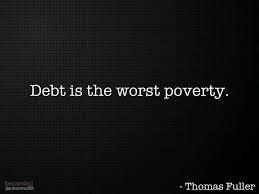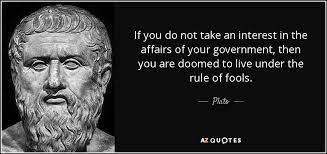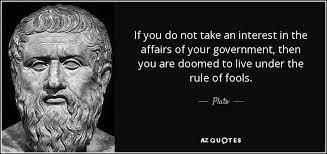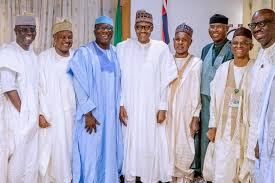 Nigerians residing in the South West Geo-Political zone are worried over the continued borrowing by State Governments in the Geo-Political zone.
Nigerians residing in the South West Geo-Political zone are worried over the continued borrowing by State Governments in the Geo-Political zone.
Already, a report puts the total debt profile of the states at N1.3 trillion, even though the debts are not commensurate with the results of governance.
The people express great doubts over the possibility that good governance and economic development shall be achieved in the next four years, as the state Governors continue to borrow.
In this interview, the Founder, Spiritual Head and Grand Imam of Shafaudeen-in-Islam Worldwide, Prof. Sabitu Olagoke asserts that if Nigerians leaders concentrate more on building strong institutions instead of strong individuals, the emphasis would shift from incurring debts to generating revenue. Excerpts :
Are you not worried over the rising debt profile of state in the South West Geo-Political zone of Nigeria ?
Recently, the Minister of Finance, Mrs. Zainab Shamsuna Ahmed, stated that the major headache for economic development is more revenue generation rather than debts.
Analyzing this within the context of our culture of impunity and corruption, the two are more of threats to the development of the nation and that of the South West because on ground, there is not much to appreciate in terms of development, most especially in the areas of provision of employment, basic amenities and functional infrastructure, apart from the fact that the debts incurred would be more of frictional resistances to the performance of any incoming administration, after the tenure of the borrower must have elapsed.
The general problem of government in Nigeria, both Federal and state, is the lack of continuity in project and policy implementation, most especially when there is a change in leadership. Yet the debts will continue to be an hitch of liability. A notable characteristic of Government in Nigeria, included poor finishing or outright abandonment of projects, no matter how laudable.
Take for example, the way we abandoned vision 2010, for vision 2020, which if it had been well executed would have propelled Nigeria to stardom, placing the country among the 20 most economically viable nations in the world.
Researches were conducted by various institutions in the country with the aim of agreeing to work towards viable and strong foundations for its feasibility on the premise of erasing our Gross Domestic Product(GDP) to $900 billion, power generation to at least 6,00 megawatts and the economic growth rate of 7 per cent, but unfortunately, 2020 is just less than a year ahead, with records of abandonment, lack of visibility, lack of viability and with almost nothing to equitably distribute.
With the sustainable development goals accompanied by with grants from various world bodies, the culture of impunity and corruption have not only weakened governance, but failed us into the mirage of sustainable development.\My advice for debt rate reduction is in the following these guidelines :
- Donor agencies need to direct interventions to specific areas of need.
- Revenue generation must move up from a status of 55 per cent of 2018.
- Judicious use of the interventions with close monitoring mechanism must be in place to ensure it is fraud free.
- Nigerian government must avoid imposed programs that are foreign without direct impact on the lives of the people.
- There must be coordination of debt management to ensure virement of grants or borrowed money by the network of the Debt Management office, management staff of the Ministry of Budget and Planning, Ministers, Permanent Secretaries and the Directors, should be held accountable for any financial shortcoming.
- Let the anti-corruption agencies proactively work with the Ministers, Permanent Secretaries, Directors, all staff of the ministry of Budget and Planning for wholesome or all encompassing cleansing of the land on the generated revenue, grants and borrowed funds with the programs and projects they intend to execute for the nation’s development using the advantages of the Treasury Single Account, The Integrated Payroll, Personnel Information System and intelligence gathering of the whistle blowers’ efforts.
Generally, the diversified economy and import dependent
economy of any nation cannot sustain such country hence there would be the need to live on debt for project execution.
To avoid this situation, the area of entrepreneurship should be given adequate attention to recover rapid economic growth.
Presently, the inflation is rate is about 11.2 per cent, while the nation operates two digit interest rates on loans.
This economic climate is never favorable to the growth of Small and Medium Scale Enterprises(SMEs), which are currently suffering from the following lackluster factors, despite the presence of Entrepreneurship studies in the curriculum of our institutions-Secondary schools, Technical colleges, Polytechnics and Universities : paucity of funds, dearth of managerial expertise, irregular power supply with high cost for substitution, no homogeneous consensus of quality and standard among SME entrepreneurs with consequent poor products against the spirit of globalization on global best practices.
There is also the lack of patronage because of low policy design and implementation of Nigeria’s SMEs’ products by government and its agencies.
In addition there is the insensitivity to global competitiveness essence due to the use of obsolete technology form, processing.
Furthermore, there is tough government business regulation on ground that are usually unfriendly to businesses and hence discourage start ups.
Government must therefore, invest on the provision of functional infrastructural facilities to thrive entrepreneurship, to increase efficiency and productivity and provide access to available markets and sustainable growth and development.
Above all, Nigerian leaders need to focus on building a strong nation, rather than building strong individuals, for any worthwhile development to come by, through high revenue generation and less of legacy debts.


 The plea for debt forgiveness by the leadership in Nigeria at the recently concluded 76TH United Nations General Assembly has been described has questionable and laughable.
The plea for debt forgiveness by the leadership in Nigeria at the recently concluded 76TH United Nations General Assembly has been described has questionable and laughable.
 The ranking of Nigeria as fifth in the list of countries with high debt risk exposure only confirms that political office holders, both elected and appointed, have done almost nothing to reinvigorate the country's health system, eradicate hunger and poverty, create convincing and satisfactory employment, ensure the growth of businesses.
The ranking of Nigeria as fifth in the list of countries with high debt risk exposure only confirms that political office holders, both elected and appointed, have done almost nothing to reinvigorate the country's health system, eradicate hunger and poverty, create convincing and satisfactory employment, ensure the growth of businesses.








